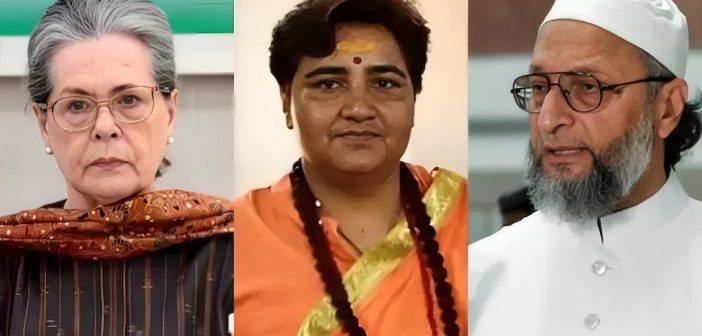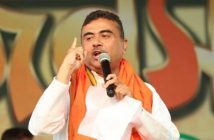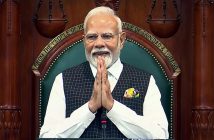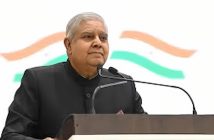Background of the 2008 Malegaon Blast
On September 29, 2008, a bomb exploded near Bhikku Chowk in Malegaon, Maharashtra. The blast killed six people and injured 95. The blast occurred during Ramadan in a Muslim-majority area. Its timing before Navratri raised fears of communal unrest. The Maharashtra Anti-Terrorism Squad (ATS) first investigated the case. Led by Hemant Karkare, the ATS alleged Hindu extremists were involved. This marked a rare instance of Hindu groups being linked to terrorism. In 2011, the NIA took over, charging seven individuals under the Unlawful Activities (Prevention) Act (UAPA) and Indian Penal Code (IPC). The case became politically charged, fueling debates over “saffron terror.”
The Verdict: A Clean Slate for the Accused
The Malegaon blast case verdict 2025 stunned the nation. On July 31, 2025, Special NIA Judge A.K. Lahoti acquitted all seven accused. The court cited a lack of “reliable and cogent” evidence. The prosecution failed to prove the bomb was strapped to a motorcycle linked to the accused. The judge ruled UAPA provisions did not apply. The trial, spanning 2018 to 2025, saw 323 prosecution witnesses, 37 of whom turned hostile. The court ordered Maharashtra to pay ₹2 lakh to victims’ families and ₹50,000 to the injured. This NIA court Malegaon blast acquittal ended a 17-year legal saga.
Who Were the Accused?
The seven acquitted individuals included high-profile names:
- Pragya Singh Thakur, former BJP MP from Bhopal, accused of providing the motorcycle.
- Lieutenant Colonel Prasad Purohit, alleged to have supplied explosives via Abhinav Bharat.
- Major (Retd.) Ramesh Upadhyay, linked to conspiracy meetings.
- Ajay Rahirkar, accused of logistical support.
- Sameer Kulkarni, tied to right-wing groups.
- Sudhakar Chaturvedi, alleged to have stored explosives.
- Sudhakar Dhar Dwivedi, a self-styled Shankaracharya.
All were out on bail before the verdict. Thakur, a sanyasi before the blast, alleged illegal detention and torture. Purohit vowed to continue serving the nation.
Court’s Key Observations
Judge Lahoti made critical remarks during the Special NIA court judgment:
- The prosecution proved a blast occurred but not the motorcycle’s role.
- Ownership of the motorcycle, initially traced to Thakur, was not established.
- No evidence linked Purohit to explosives or conspiracy.
- “Terrorism has no religion,” Lahoti said, rejecting convictions based on “moral grounds.”
- The court ordered a probe into alleged evidence tampering by the ATS.
These findings highlighted investigative lapses, weakening the prosecution’s case. The judge stressed that suspicion alone cannot replace proof.
Political Reactions: A Divided Discourse
The Political reactions Malegaon case were swift and polarized:
- BJP’s Stance: Maharashtra CM Devendra Fadnavis posted on X, “Terrorism was never saffron, is not, and will never be!” BJP MP Ravi Kishan demanded accountability from Congress for “false allegations.”
- Congress Response: State Congress chief Harshwardhan Sakpal questioned whether the Modi and Fadnavis governments would appeal.
- AIMIM’s Outrage: Asaduddin Owaisi called the verdict “disappointing” on X, blaming a “shoddy investigation.” He asked if the Modi and Fadnavis governments would appeal.
- Shiv Sena’s Support: MP Naresh Mhaske hailed the verdict, claiming the accused were pressured by ATS.The Political parties views on acquittal reflect deep ideological divides, with some celebrating the verdict and others decrying it as a miscarriage of justice.
Social and Legal Reactions
Victims’ families expressed anguish. Advocate Shahid Nadeem, representing them, told ANI, “The bomb blast was proved; the agency failed.” He plans to appeal in the High Court. Experts criticized the NIA’s handling. “Witnesses turning hostile and evidence gaps are there,” said advocate Majeed. Some parties may get political benefit on this verdict. Civil rights activists raised concerns about communal bias in probes. The families resolve to challenge the Malegaon Blast Acquittal signals ongoing legal battles.
Impact on NIA’s Credibility
The Malegaon Blast Acquittal has dented public trust in anti-terror investigations. The NIA’s failure to secure convictions after 17 years raises questions. Owaisi claimed it a “deliberately shoddy” probe done. Former prosecutor Rohini Salian’s 2016 statement about being asked to “go soft” on the accused resurfaced. The court’s order to probe ATS evidence tampering adds to the scrutiny. Experts suggest reforms:
- Strengthen witness protection to prevent hostile turnarounds.
- Ensure independent oversight of terror probes.
- Address political interference in investigations.
Without changes, public faith in agencies like the NIA may erode further.
Historical and Communal Context
The 2008 Malegaon blast occurred in a communally sensitive town. Malegaon’s Muslim-majority population made the attack divisive. The ATS’s initial claim of Hindu extremist involvement sparked the “saffron terror” narrative. This polarized opinions, with right-wing groups alleging a misconduct by the Congress party officials. Karkare, killed in the 26/11 Mumbai attacks, faced political heat for his probe. The Malegaon bombing case update rekindles these tensions. The acquittal may deepen mistrust between communities, especially with no clarity on the perpetrators. Sensitivity in reporting and policy is crucial to avoid escalation.
The 2006 Malegaon Blast Connection
The Malegaon 2008 blast accused released in prior cases adds context. On September 8, 2006, bombs killed 37 in Malegaon. Nine Muslim men were arrested but acquitted in 2016 due to weak evidence. The 2006 and 2008 blasts share parallels: communal targeting, prolonged trials, and acquittals. These outcomes highlight systemic issues in terror probes. Victims of both blasts feel justice remains elusive, intensifying calls for accountability.
Future Developments
The Malegaon Blast Acquittal is not the end. Advocate Nadeem confirmed victims’ families will appeal. The NIA has not announced its stance on an appeal. Legal observers doubt a successful appeal without new evidence. The court’s directive to probe ATS misconduct may lead to disciplinary actions. Whether these steps bring closure remains uncertain. The case will likely shape discussions on terror laws and judicial delays.
The Bottom Line
The Malegaon blast case verdict 2025 has left India grappling with unanswered questions. The NIA court Malegaon blast acquittal of seven accused, including Pragya Thakur, highlights investigative failures. While some celebrate the Special NIA court judgment, victims’ families and activists demand justice. The Political reactions Malegaon case expose deep divides, with Political parties views on acquittal fueling debates. The verdict dents the NIA’s credibility and rekindles communal tensions. As appeals loom, the Malegaon bombing case update underscores the need for robust investigations. The Malegaon 2006 blast accused released saga echoes similar frustrations. India must reform its anti-terror framework to ensure justice prevails.
Share your thoughts on the Malegaon verdict in the comments below.




